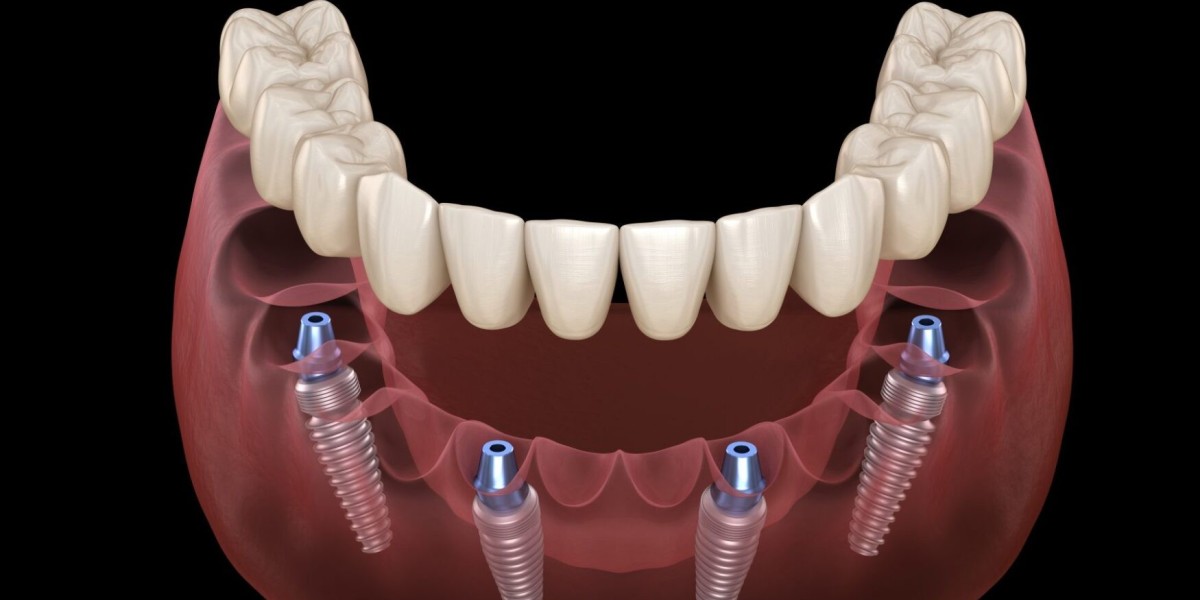This comprehensive guide explores the benefits of dental implants, the procedure, recovery process, and factors to consider when opting for this transformative dental treatment.
What Are Dental Implants?
Dental implants are artificial tooth roots made of biocompatible materials such as titanium. These implants are surgically placed into the jawbone, where they integrate with the bone through a process called osseointegration. This integration provides a stable foundation for attaching replacement teeth, such as crowns, bridges, or dentures. The result is a restoration that functions, feels, and looks like natural teeth. View more Navigating the World of Dental Implants: What to Expect Before, During, and After.
Benefits of Dental Implants
Natural Appearance and Functionality: Dental implants are designed to mimic the appearance and function of natural teeth. They provide the same biting force and stability, allowing you to eat, speak, and smile with confidence.
Durability and Longevity: With proper care, dental implants can last a lifetime. Their durability makes them a cost-effective solution in the long run, compared to other dental prosthetics that may need frequent replacement.
Improved Oral Health: Implants do not require the reduction of adjacent teeth, as traditional bridges do. This preserves the health and integrity of your remaining natural teeth.
Bone Preservation: Dental implants stimulate the jawbone, preventing bone loss that typically occurs when a tooth is lost. This helps maintain your facial structure and prevents the sunken appearance that can develop over time.
Enhanced Comfort and Convenience: Unlike removable dentures, implants become a permanent part of your mouth, eliminating the discomfort and inconvenience of removable prosthetics. There’s no need for adhesives, and you can care for them like natural teeth.
Improved Speech: Poor-fitting dentures can slip and cause speech difficulties. Dental implants allow you to speak clearly without worrying about teeth moving out of place.
The Dental Implant Procedure
The process of getting dental implants involves several stages and can take several months to complete. Here is a step-by-step overview of what to expect:
Initial Consultation: During this visit, your dentist will assess your oral health, take X-rays or 3D scans, and discuss your treatment goals. This step is crucial for creating a personalized treatment plan.
Treatment Planning: A detailed treatment plan will be developed based on your oral health and the number of implants needed. If your jawbone is too thin or soft to support an implant, a bone graft may be necessary.
Bone Grafting (if needed): If required, bone grafting involves adding bone or a bone-like material to the jaw to create a solid base for the implant. This procedure may extend the overall treatment timeline, as healing can take several months.
Implant Placement: The implant placement is a surgical procedure performed under local anesthesia. The dentist makes an incision in the gum to expose the bone, drills a hole, and inserts the implant. After placement, the gum is stitched back, and a temporary crown may be placed.
Healing and Osseointegration: Over the next few months, osseointegration occurs, during which the implant fuses with the jawbone. This period is crucial for the stability of the implant.
Abutment Placement: Once the implant is securely integrated, an abutment is attached to the implant. The abutment acts as a connector between the implant and the replacement tooth.
Crown Placement: The final step involves placing the custom-made crown onto the abutment. The crown is designed to match your natural teeth in color, shape, and size, ensuring a seamless appearance.
Recovery and Aftercare
The recovery process is critical to the success of dental implants. Here are some tips to ensure a smooth healing process:
Post-Surgery Care: Follow your dentist’s instructions carefully, which may include taking prescribed medications, applying ice packs to reduce swelling, and avoiding strenuous activities for a few days.
Oral Hygiene: Maintain excellent oral hygiene by brushing twice a day, flossing daily, and using an antibacterial mouthwash. Keeping the implant site clean is crucial to prevent infection.
Dietary Adjustments: Stick to a soft diet immediately after surgery and gradually reintroduce harder foods as recommended by your dentist. Avoid chewing directly on the implant site during the initial healing phase.
Regular Dental Visits: Attend all scheduled follow-up appointments so your dentist can monitor the healing process and ensure the implant is integrating properly.
Lifestyle Considerations: Avoid smoking and excessive alcohol consumption, as these can impede the healing process and increase the risk of implant failure.
Factors to Consider
While dental implants offer many benefits, they may not be suitable for everyone. Here are some factors to consider:
Bone Density: Adequate bone density is required to support the implant. If you have experienced significant bone loss, bone grafting may be necessary.
Overall Health: Good overall health is essential for a successful implant procedure. Chronic conditions like diabetes or heart disease need to be well-managed.
Oral Hygiene: Maintaining excellent oral hygiene is crucial for the longevity of dental implants. Regular brushing, flossing, and dental check-ups are necessary to prevent complications.
Smoking: Smoking can impair the healing process and increase the risk of implant failure. It’s advisable to quit smoking before undergoing the procedure.
Conclusion
Dental implants provide a transformative solution for individuals seeking to restore their smiles and improve their quality of life. They offer numerous benefits, including enhanced appearance, speech, comfort, and oral health. While the process involves a significant time commitment and requires careful planning and aftercare, the results are well worth it. With proper maintenance, dental implants can last a lifetime, making them a valuable investment in your overall health and well-being. If you're considering dental implants, consult with a qualified dental professional to explore your options and develop a personalized treatment plan tailored to your needs.







